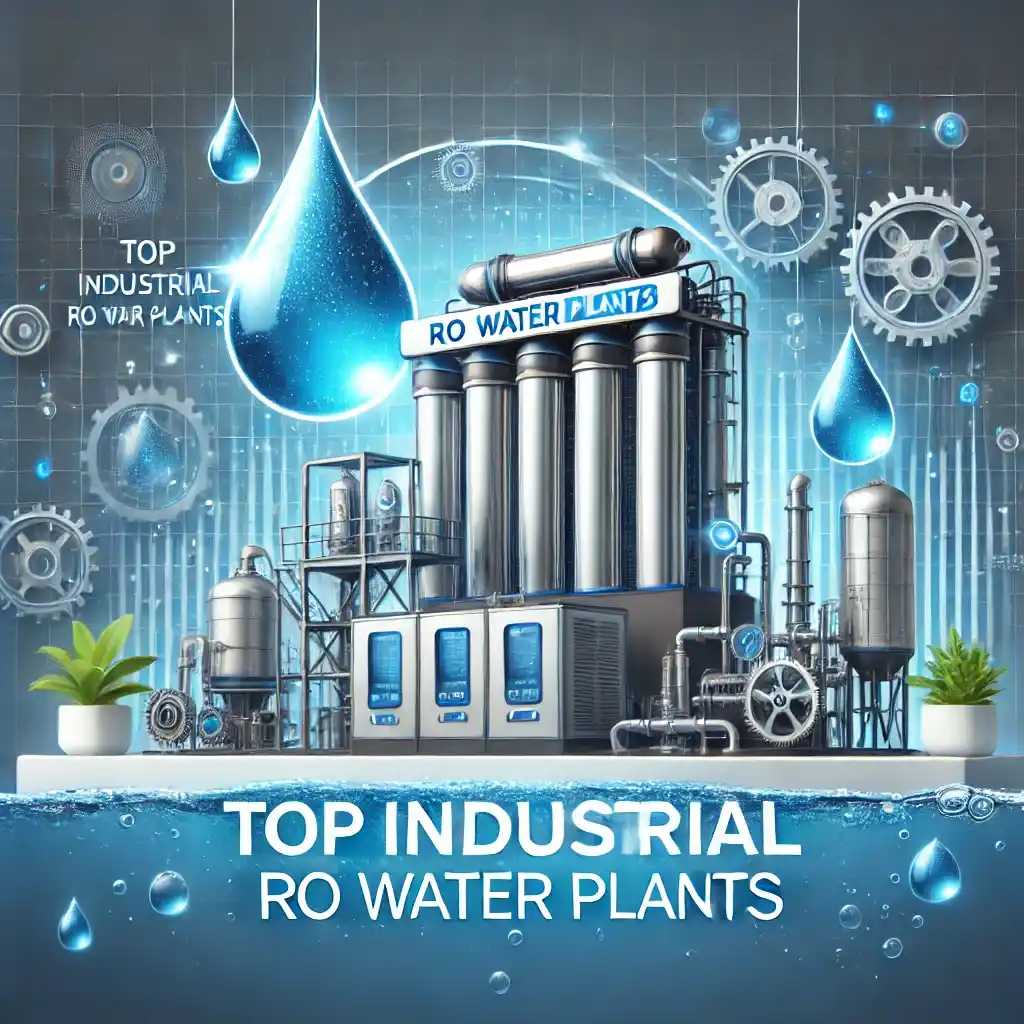

RO Water Plant
Ensuring a consistent, clean, and safe water supply for industrial processes is crucial. One of the most effective solutions is installing an RO (Reverse Osmosis) water plant. RO plants purify water by removing harmful contaminants such as salts, bacteria, and other impurities, making it safe for consumption and industrial use.
In industries such as manufacturing, pharmaceuticals, food and beverage, and textiles, the quality of water is directly linked to the final product. Therefore, choosing the right RO water plant is essential for maintaining water purity and operational efficiency.
What Is an RO Water Plant?
An RO water plant purifies water using reverse osmosis technology. This process involves passing water through a semi-permeable membrane that removes dissolved salts, minerals, and impurities. The result is purified water suitable for various industrial applications.
RO plants are widely used across industries where water quality impacts production, including in food production, pharmaceuticals, and textiles. With their high efficiency and ability to handle large volumes, RO systems are perfect for large-scale water purification needs.
Key Factors to Consider When Choosing an RO Water Plant
Selecting the right RO water plant for your business requires considering several important factors:
1. Capacity Requirements
The capacity of the RO water plant depends on your business’s water consumption. RO plants range from 500 LPH (liters per hour) to over 10,000 LPH. For example:
- The Blue Hawk 10000 LPH Semi-Automatic Industrial RO Water Plant is ideal for large industries with high water needs.
2. Type of Water to Be Treated
Different water sources have varying levels of contamination. Whether you're treating borewell, river, or municipal water, ensure the plant is designed for your specific water type.
3. Automation and Ease of Operation
Automation levels vary from fully automatic systems to semi-automatic plants. A Pure Jal 500 LPH RO Water Plant for Industrial Use, for example, is semi-automatic and strikes a balance between user control and ease of operation.
4. Material Durability
The material of the RO plant impacts its longevity and maintenance needs. FRP (Fiber Reinforced Plastic) and stainless steel are common materials. FRP, in particular, is durable and resistant to corrosion. For example, the 250 LPH Commercial RO Water Plant with FRP Material is built to withstand harsh environments.
5. Maintenance and Service
Choose plants with easy-to-replace filters and membranes. Also, ensure reliable customer support and access to service centers.
Top RO Water Plants for Industrial Use
Let’s explore some of the best RO water plants tailored to various industrial needs:
-
Blue Hawk 10000 LPH Semi-Automatic Industrial RO Water Plant: Perfect for high-demand industries, this plant offers 10,000 LPH capacity, balancing automation with manual control.
-
Pure Jal 500 LPH RO Water Plant for Industrial Use: Ideal for medium-scale operations, this plant is semi-automatic and offers 500 LPH capacity, providing efficient water purification.
-
250 LPH Commercial RO Water Plant with FRP Material: Compact and durable, this 250 LPH plant is great for smaller commercial applications requiring a reliable water supply.
-
Semi-Automatic 500 LPH FRP Industrial RO Water Plant: Designed for moderate water needs, this plant is durable, efficient, and perfect for medium-sized industries.
-
500 LPH FRP RO Water Plant for Industrial Use: This plant offers excellent performance and durability for medium-sized industrial applications.
Conclusion
Choosing the right RO water plant is essential for maintaining water quality and ensuring the smooth operation of your industrial processes. By considering factors like capacity, material, water source, and ease of maintenance, you can select the perfect plant for your business needs. Whether you need a high-capacity system for large-scale operations or a smaller, more compact unit, the right RO plant will support your business’s growth and efficiency.
Make the right choice for your water purification needs and ensure your industrial processes run smoothly and efficiently.
Call to Action:
Explore more about industrial RO water plants and find the perfect solution for your business today!
This version includes SEO-friendly elements like internal links to product names, clear headings, and concise, easy-to-read content, making it more optimized for search engines.